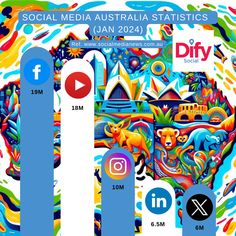Australian lawmakers are cracking down on social media usage among minors. A new law could soon make it illegal for under-16s to have accounts on platforms like Facebook, Instagram, TikTok, and Snapchat. Companies that fail to comply face millions in fines.
Centre-left Prime Minister Anthony Albanese, who is eyeing an election early next year, has enthusiastically championed the ban and rallied Aussie parents to support it.
In the run-up to Wednesday’s vote, he painted social media as “a platform for peer pressure, a driver of anxiety, a vehicle for scammers and, worst of all, a tool for online predators”.
He wanted, he said, young Australians “off their phones and onto the footy and cricket field, the tennis and netball courts, in the swimming pool”.
Although Australia’s proposed social media ban is one of the most stringent globally, its implementation details remain elusive. Experts express skepticism regarding the ban’s efficacy, citing the ease with which age restrictions can be circumvented. The ban’s future is uncertain, with potential legal challenges and concerns about its symbolic nature.
Some companies will likely be granted exemptions, such as WhatsApp and YouTube, which teenagers may need to use for recreation, school work or other reasons.
Business networking site LinkedIn is also looking for an exemption, presenting the novel argument that its product is too boring for those under 16 to be interested in joining anyway.
“LinkedIn simply does not have content interesting and appealing to minors,” the firm said in a submission to the government.
Social media expert Susan Grantham criticized the legislation as a knee-jerk reaction, warning that a blanket ban could isolate young people and lead to unintended consequences, such as increased inappropriate content. Instead, she advocated for better digital literacy education. Many countries are watching Australia’s experiment, with some considering similar bans, like China’s restrictions on minors’ online activity.

